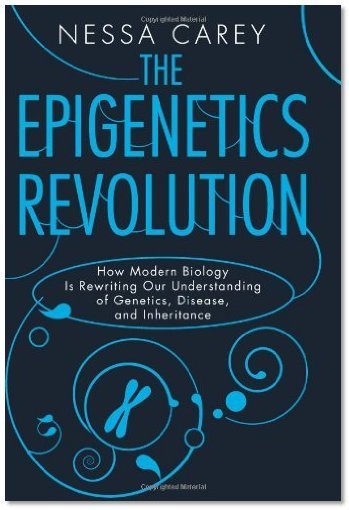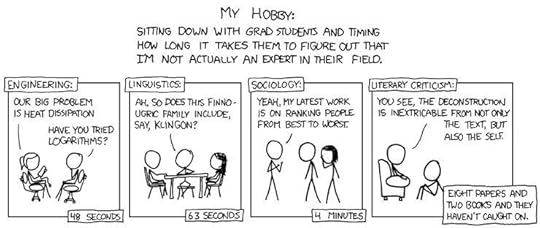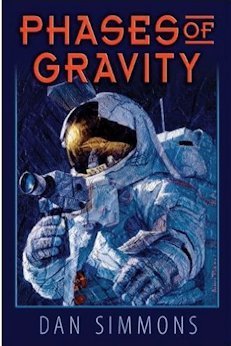Graham Storrs's Blog, page 14
May 16, 2012
The Earth Ship Available on Kindle

 Marketing Maestro, Joe Konrath, says you should not only sell collections of your short stories on Kindle, but also sell each of the stories in the collection as a separate item. So I thought I’d have a go at putting a short story (a fairly long short story as it happens, nearly 9,000 words) into the Kindle Store to see how much hassle is involved and whether it sells.
Marketing Maestro, Joe Konrath, says you should not only sell collections of your short stories on Kindle, but also sell each of the stories in the collection as a separate item. So I thought I’d have a go at putting a short story (a fairly long short story as it happens, nearly 9,000 words) into the Kindle Store to see how much hassle is involved and whether it sells.
I chose my story, The Earth Ship, partly because it’s quite long, and partly because it’s one of my favourites. Putting a story into the Kindle Store using KDP is essentially the same amount of trouble regardless of how long it is. The formatting requirements are the same, you still need a cover, and I gave the book an ISBN (although, strictly, this isn’t necessary, I believe). You also have to ensure the quality – so it needs editing. But this story has been commercially published before (twice) so it only needed a light polish. Then you just have to fill in the KDP forms and hit the go button.
By far and away the biggest problem for me was the cover. I’m no artist and my skills with image editing software are slight. I took a stock image and modified it, found a nice font and stuck the title and my name on the front. Sounds simple, but it took me as long to do that as all the rest of the preparation put together. Yet it seemed way over the top to employ a real graphic designer for a 9,000-word story that will sell for $0.99c. (And to sell at .99c, I had to take a 35% cut of the sale price, not the 70% Amazon is always bragging about.) In fact, I felt a little embarrassed to put a cover on it at all – although not quite so embarrassed as adding copyright messages, dedications, and acknowledgements at the front, and ‘about the author’ marketing stuff at the back. It’s a short story, for heaven’s sake. Still, I thought I should do it properly.
It went up yesterday afternoon and, by golly, it’s already started selling! Selling in America, that is. For some reason, the Good ‘Ol US of A has been immensely supportive of my writing while the UK, Europe and even Australia have mostly ignored it. Maybe people in those places don’t have ebook readers, or Kindles, specifically. Who can say? Anyway, as ever, I’m immensely grateful there’s such a great market across the pond.
Oh, I suppose I should add a link too, just in case. You can find my short story, The Earth Ship, on the Amazon Kindle Store for 99c. And, if you buy it, I really hope you enjoy it.
May 12, 2012
Autumn Leaves

These could be our last days.
We could meet our end tomorrow
With the dull incomprehension
Of hooked fish,
Pieces of Kentucky Fired Chicken
In our open mouths.
Then the wide, straight roads
That led us here
Would crack and decay
To nothing.
The trees would stand in the quad,
Blasted and poisoned,
Watched for us
By the eye of God.
And only He would remember
How the van Goughs and the Plaths
Made their long, hard deaths
A swan song;
The way we walked on the Moon
And built Samarkand; the way,
When Autumn leaves fall to the ground,
For the briefest while
They dance in the sky.
May 3, 2012
New Year’s Day 5 GWC

 May the Fourth be strong with you all. Yes, you’ve noticed, it’s May the 4th and yesterday was the end of the fourth year of my writing career. (By trawling back through the hundreds of posts I’ve written since 4th May 2008, you’ll see that, not only do I mark the date each year, but I do it with the same execrable pun.) So happy New Year and may 5 treat you all well.
May the Fourth be strong with you all. Yes, you’ve noticed, it’s May the 4th and yesterday was the end of the fourth year of my writing career. (By trawling back through the hundreds of posts I’ve written since 4th May 2008, you’ll see that, not only do I mark the date each year, but I do it with the same execrable pun.) So happy New Year and may 5 treat you all well.
Usually, on this occasion, I ramble on about all my writing achievements in the previous year but I won’t bore you with that this time. Oh well, maybe just a couple of things. I know you’ll indulge me. The year was dominated by two remarkable things.
The first was that my novel TimeSplash had some exciting and unexpected interest. I had an audiobook edition published by the wonderful people at Iambik Audiobooks. (As you know, it’s read by the fabulous Emma Newman, so if you didn’t buy a copy last year, make it your New Year’s resolution to do so soon. It’s a terrific reading.) A new ebook edition also went nuts on Amazon and was number 1 in sci-fi for a short while, and number 1 in technothrillers for ages (about 10 weeks – but it felt like ages). For a book that was published over two years ago and has never had any publicity, I was amazed and delighted by all this renewed activity.
The other remarkable thing was that my lovely agent, Ineke, has been waving my books under various noses and generating some interest and excitement at one of the Big Six publishers. Of course, excitement at a major publishing house runs at a very different rate to excitement in, say, a near-future sci-fi thriller, and what might occupy a few pages in one of my novels has taken endless, stupefying months. The tension (let me tell you) is no less than you’d find in the best psychological thriller (for me, anyway) it’s just the timescale that’s different. Anyway, my bones are deforming from having had everything crossed for so long. It’s nice to have the interest though. Oh yes.
Speaking of Big Six publishers and the writers retreat I credit with starting my career back in May 2008, one of the people imparting wisdom to us bright young things at that event was an editor called Deonie Fiford who was part of Hachette’s Orbit imprint at the time. Well, guess who’s just turned up as the new Associate Publisher at HarperCollins Voyager, replacing the outgoing and much admired Stephanie Smith? Is it a small world, or what?
And next year?
Well, 9 hours into 5 GWC, it looks much like 4 GWC. And that’s a good thing because 4 was a good year. I envisage at least a few more months waiting for a decision at Big 6 Co., then, most likely, on to Plan B – essentially a plan to begin marketing to overseas publishers. I have plenty of books to write in the meantime. Last year I wrote, or finished writing four novels, including my beloved sci-fi comedy, Cargo Cult, a second book in my near future sci-fi thriller series (called The Sentience Machine), the first book in my far future space opera trilogy Deep Fracture (Deep Fracture being the second trilogy in that series) and the first of a new series I’m very excited about – a kind of sci-fi equivalent of urban fantasy – called Mindrider. I can’t imagine being quite so productive next year, but my current WIP, a standalone sci-fi mystery novel tentatively called Heaven is a Place on Earth, is going very well and I’m dying to get on with some of the series I just mentioned. There will be a couple of shorts coming out in anthologies and I wrote a piece about world-building for a non-fiction collection on the same topic that should be available in a few months. I wrote a number of reviews for the New York Journal of Books last year and I’ll certainly continue with that in the coming year. I imagine there will be other small projects like these going on but, really, I like writing novels – series of novels, even – and that’s where nearly all my energies will be focused.
So, farewell 4 and hello 5. I hope you all have a good year and that I have exciting news for you during the next twelve months.
May the Fourth be with you.
May 1, 2012
Review: The Epigenetics Revolution by Nessa Carey

 (This review first appeared in the New York Journal of Books.)
(This review first appeared in the New York Journal of Books.)
About 100 years ago, our understanding of the universe was rocked when Einstein’s theory of relativity was published. Yet even as the world came to grips with this astonishing insight, another even less intuitive and more complex model of reality, quantum theory, was beginning to take shape. Today we stand in a similar position in the biological sciences. The great revelation that DNA is the foundation of all life, culminating in the mapping of the human genome in 2007, is currently being paralleled by a more complex model of how genes give rise to organisms: epigenetics, a science that has barely begun its journey but which has already made startling discoveries, and like quantum theory, is liable to have many, far-reaching effects on our lives.
Epigenetics is the study of how our genetic material is modified by chemical processes within cells which modify the way genes behave, leading them to be expressed to different extents, switched off entirely, or activated in a particular order. Wherever we see genetically identical organisms developing differently, there is almost certainly an epigenetic effect at work. Wherever we see the environment inducing changes in an organism that then persist even after the external influence has changed, there too, the cause is likely to be epigenetic.
Only about 2% of our DNA actually codes for proteins—a mere 20,000 genes. The rest comprises noncoding RNA genes, regulatory sequences, introns, and noncoding DNA (which was previously known as “junk DNA”). There is still about a quarter of the human genome that is unclassified. What we are discovering is that this great mass of genes—the other 98% of our genome—manages and regulates the behavior of the 2% that makes the proteins that make our bodies work.
To really appreciate the importance of epigenetics in biology, just consider the organs of your body: the liver, the heart, the brain, the skin, and so on. Each has its own cell types and the cells of each organ breed true generation after generation throughout your life. Yet all these cell types are derived from a single fertilized egg cell. Each zygote divides and begins to specialize, and those specialized cells eventually develop into the hundreds of cell types that make up our bodies. It is now known that the molecular mechanism that makes one cell a kidney cell and another an eyeball—and keeps them that way however often they divide—is an epigenetic mechanism.
As an introduction to this emerging field, The Epigenetics Revolution by Nessa Carey is a must-read for every intelligent person who likes to know what is going on in modern science. Dr. Carey does an excellent job of relating the history of the subject with all the key ideas clearly laid out and all the necessary background in genetics and cell biology carefully included. You don’t need to be a biologist or chemist to enjoy this book. Everything you need to follow the argument is succinctly provided, without distracting excursions into other fields. There are even genuinely helpful diagrams, many with cute mice in them, to illuminate some of the more complex ideas.
After the groundwork is laid, she plunges into the major areas of application—cancer, aging, memory, sex, mental illness, plant biology, and more—tackling them chapter by chapter in a way that will leave the reader astonished at the breadth of the field and its potential for unraveling some of our most difficult and pressing problems. The sense of excitement and wonder as each of these areas of study is opened up and revealed is testimony to the excellent job of structuring the book that Dr. Carey has done.
For those not tempted to delve into a science with such a scary name, whatever you do, don’t open this book in the middle to decide whether to buy it. The text introduces ideas and terminology and then builds slowly and carefully on them to introduce new ideas and terminology. If read from the beginning, all is well. The kind of sentence you will encounter just 100 or so pages in (like this one on p. 127, “The phenotypes in both these models are a consequence of the methylation levels of an IAP retrotransposon upstream of a gene.”) might just scare the pants off you if you haven’t read all the pages leading up to it, but if you have, it all makes perfect sense.
The heavy use of acronyms in the book (here’s an example from p. 231, “The 3′UTRs of both DNMT3A and DNMT3B mRNA contain binding sites for a family of miRNAs called miR-29.”) may also make the text look a lot more daunting than it really is. For those of us who need to see a string of letters more than once before it’s fixed in our memories, there is a very helpful glossary at the back (of the print editions). It might have been helpful to the lay reader to expand all acronyms all the time—even if the book ended up 10% longer.
Yet even if you struggle with the text, this book is well worth reading. The science of epigenetics is going to be huge in the 21st century, and The Epigenetics Revolution is a very supportive way to become acquainted with its fundamentals.
Dr Carey writes well and clearly. The pace is easy and the overall story she tells is coherent and convincing. Not every single facet of the science is covered (no mention is made of the the modification of RNA—as opposed to DNA—by one of the key epigenetic mechanisms, for example), but epigenetics is already a large field and is growing fast. The Epigenetics Revolution isn’t meant as a textbook or a comprehensive survey. It is an introductory text for the layperson and as such, does its job brilliantly.
March 29, 2012
Please, let’s not even go there.

I came across this article recently in SF Signal. It is about how to adapt literary criticism so that it can be applied to science fiction.
Sadly, I just don’t get it. I mean, I understand the article and what the author is saying, but I don’t see why on earth anyone would be interested in doing such a thing. Few things in life seem quite as pointless as literary criticism. I see absolutely no imperative to shape or develop it to “suit” SF and can happily imagine a world without any kind of literary criticism – primarily because its concerns seem to be entirely manufactured.
It’s like pulling the legs off insects, or breeding pugs, or collecting matchbox labels. I know that some people do it but I just can’t see why.
That is not to say it isn’t a useful thing to express your feelings about a particular work. This kind of “review” serves a valuable social function for those wondering where to invest their time and money. Nor is it a waste of time to discuss the ideas in a particular work. Apart from its entertainment value, science fiction is all about the ideas. But to indulge in literary criticism seems to add nothing of value at all – unless, like topiary, it is enjoyable for those who do it.

Fashionable Nonsense
(For more XKCD fun visit xkcd.com.)
Please, let's not even go there.

I came across this article recently in SF Signal. It is about how to adapt literary criticism so that it can be applied to science fiction.
Sadly, I just don't get it. I mean, I understand the article and what the author is saying, but I don't see why on earth anyone would be interested in doing such a thing. Few things in life seem quite as pointless as literary criticism. I see absolutely no imperative to shape or develop it to "suit" SF and can happily imagine a world without any kind of literary criticism – primarily because its concerns seem to be entirely manufactured.
It's like pulling the legs off insects, or breeding pugs, or collecting matchbox labels. I know that some people do it but I just can't see why.
That is not to say it isn't a useful thing to express your feelings about a particular work. This kind of "review" serves a valuable social function for those wondering where to invest their time and money. Nor is it a waste of time to discuss the ideas in a particular work. Apart from its entertainment value, science fiction is all about the ideas. But to indulge in literary criticism seems to add nothing of value at all – unless, like topiary, it is enjoyable for those who do it.

Fashionable Nonsense
(For more XKCD fun visit xkcd.com.)
March 22, 2012
Review: Phases of Gravity by Dan Simmons

 (This review first appeared in the New York Journal of Books.)
(This review first appeared in the New York Journal of Books.)
Dan Simmons is an excellent writer and a serious man, someone who thinks about what it all means and isn't embarrassed to explore the mystical as well as the harder edges of reality. Anyone who has read his science fiction novels would know that. So it is not surprising to find those same qualities in Phases of Gravity, a plain and straightforward story of a man facing a midlife crisis.
This is a coming of old age story with a bit of a difference: The protagonist Richard Baedecker is a former astronaut and once walked on the moon. So Baedecker has more than the usual difficulty in dealing with the onset of his declining years and the loss of his glorious youth.
He does all the midlife crisis things: quits his job, forms a relationship with a woman less than half his age, and goes on a kind of road trip to revisit his past—in the form of the two other astronauts who went to the moon with him. He stops just short of buying himself a sports car. He is also trying to repair his relationship with his twenty-something son who, at the start of the book, is in the thrall of a phony guru and doesn't seem interested in his father's problems.
Yet the book rises above these clichéd elements. The writing is neither beautiful nor poetic, rather it is plain and simple, letting the characters and their thoughts emerge without obfuscating clouds of lyricism. Even the scenes on the moon, vividly portrayed though they are, do not lapse into flowery prose.
The author has the knack of making thoughtful and pithy observations that not only fill out the characters but have a more general appeal. For instance, early in the piece, the young woman in Baedecker's future is described as having an "awareness" that he associated with "true adults as opposed to those who had simply grown up."
The decline of the space program is reflected in the decline of Baedecker and his friends, in the declining ethical status of the nation, post-Nixon, in his memories of his own father's decline. When his father says in flashback, "The mistake is waiting and waiting for the payoff like it's a reward you've got coming," it sums up the passive acceptance—by everyone—of all that has gone adrift in Baedecker's life.
If this hadn't been a book by Dan Simmons, it would likely pass unnoticed—as it seems to have done when it was first released in 1989. Phases of Gravity is quiet, reflective, and intelligent, undoubtedly well written, but not a book that would excite too many readers.
Yet Dan Simmons is the name on the cover. There are hoards of Dan Simmons fans out there who will either love to see their favourite author writing in another genre and doing it well—or will hate Phases of Gravity because it is not Mr. Simmons' usual fast-paced adventure story full of invention and color. Hopefully there will be more of the former than the latter.
March 13, 2012
It’s OK. You Can Use Paypal Again.

Smashwords wrote today to say that the pressure is off from Paypal. They (and presumably other book sellers) will be allowed to sell any legal books without fear of Paypal services being withdrawn. Apparently, all it took was for tens of thousands of people to protest about it to make Paypal talk to the credit card companies. The credit card companies then saw reason (or wanted to avoid the focus of all this outrage turning on them) and withdrew their demands that Paypal censor books.
For those who believed Smashwords, or Paypal, were the bad guys in this, I present a quote from Mark Coker’s letter to all Smashwords authors. It looks as if it just needed someone along the line to make a stand and say this is not acceptable. And, as all the corporations in the chain gave way, it was down to the authors themselves to kick up a fuss and demand something better from the financial institutions. Here’s the extract from Mark’s letter:
I would like to thank our friends at PayPal. They worked with us in good faith as they promised, engaged us in dialogue, made the effort to understand Smashwords and our mission, went to bat for our authors with the credit card companies and banks, and showed the courage to revise their policies.
This is a big, bold move by PayPal. It represents a watershed decision that protects the rights of writers to write, publish and distribute legal fiction. It also protects the rights of readers to purchase and enjoy all fiction in the privacy of their own imagination. It clarifies and rationalizes the role of financial services providers and pulls them out of the business of censoring legal fiction.
Following implementation of their new policies, PayPal will have the most liberal, pro-First-Amendment policies of the major payment processors. Will Google Checkout and Checkout by Amazon be next now that the credit card companies have clarified their positions, and have essentially given payment providers the permission to adopt more enlightened policies?
It's OK. You Can Use Paypal Again.

Smashwords wrote today to say that the pressure is off from Paypal. They (and presumably other book sellers) will be allowed to sell any legal books without fear of Paypal services being withdrawn. Apparently, all it took was for tens of thousands of people to protest about it to make Paypal talk to the credit card companies. The credit card companies then saw reason (or wanted to avoid the focus of all this outrage turning on them) and withdrew their demands that Paypal censor books.
For those who believed Smashwords, or Paypal, were the bad guys in this, I present a quote from Mark Coker's letter to all Smashwords authors. It looks as if it just needed someone along the line to make a stand and say this is not acceptable. And, as all the corporations in the chain gave way, it was down to the authors themselves to kick up a fuss and demand something better from the financial institutions. Here's the extract from Mark's letter:
I would like to thank our friends at PayPal. They worked with us in good faith as they promised, engaged us in dialogue, made the effort to understand Smashwords and our mission, went to bat for our authors with the credit card companies and banks, and showed the courage to revise their policies.
This is a big, bold move by PayPal. It represents a watershed decision that protects the rights of writers to write, publish and distribute legal fiction. It also protects the rights of readers to purchase and enjoy all fiction in the privacy of their own imagination. It clarifies and rationalizes the role of financial services providers and pulls them out of the business of censoring legal fiction.
Following implementation of their new policies, PayPal will have the most liberal, pro-First-Amendment policies of the major payment processors. Will Google Checkout and Checkout by Amazon be next now that the credit card companies have clarified their positions, and have essentially given payment providers the permission to adopt more enlightened policies?
March 6, 2012
Credit Card Companies are Censoring Legal Books

 A few days ago, Smashwords wrote to its authors to say they were being forced to censor certain erotica titles on the insistence of Paypal. Now I don't read or write erotica but I care very much that other people should be allowed to. I also care that corporations should not be allowed to dictate what literature is available so long as that literature is legal – and it is, in this case.
A few days ago, Smashwords wrote to its authors to say they were being forced to censor certain erotica titles on the insistence of Paypal. Now I don't read or write erotica but I care very much that other people should be allowed to. I also care that corporations should not be allowed to dictate what literature is available so long as that literature is legal – and it is, in this case.
Smashwords is a company that relies heavily on Paypal to process payments for books and to pay royalties to its authors. If Paypal were to withdraw its services, Smashwords would be forced out of business. So Smashwords is complying with Paypal's demands, while trying to talk them into a more reasonable position. Meanwhile, writers are receiving shocking emails from Smashwords, like this one, received by Tess Harding.
Smashwords reports that Paypal is claiming they are under pressure to do this by the credit card companies they deal with – and without which their own business could not survive. These companies almost certainly include MasterCard, Visa and American Express. You're probably wondering, like me, why these financial giants are so concerned about public morality that they would take the extraordinary step of censoring legal books. The only answer I've seen so far is in a post by writer Selena Kitt. I quote,
"What I discovered was that most merchant-services (i.e. companies that allow you to use Visa and MasterCard on their site) which allow adult products charge a $5000 up-front fee to use their service. Then, they take exorbitant percentages from each transaction. Some 5%, some 14%, some as high as 25%. Now it was starting to make more sense. The credit card companies charge higher fees for these "high-risk" accounts because there is a higher rate of what they call "chargebacks." You know that protection on your credit card, where if you dispute the charge, you don't have to pay for it? Well they've determined that happens more with porn and gambling and other "high-risk" sites than others, so they're justified in charging more money to process payment for those sites. Paypal doesn't want to have to pay Visa and MC for carrying "high risk" accounts on their books. "
Here is a letter I intend to send to Paypal (based on one sent by writer Robert Szeles). Please feel free to use it yourself or modify it as you please. A similar letter will go to my credit card company.
I am writing to protest Paypal's refusal to process payments on certain types of literature distributed through Smashwords and other digital distributors.
I do not want Paypal determining what I can and cannot read. It is not your place to do so. If Paypal continues this practice, I will seek another vendor to process my future payment transactions, which would be disappointing, as I have been very happy with Paypal up to this point. I will be contacting the major financial institutions that Paypal claims are putting pressure on it to protest their involvement as well.
Whatever problems the credit card companies may have with porn and gambling sites, it is no excuse for censoring books. None whatsoever.
(In case you're looking around: 17 Paypal alternatives for e-commerce )



